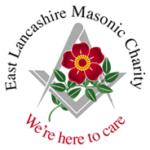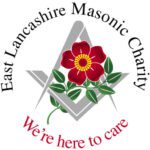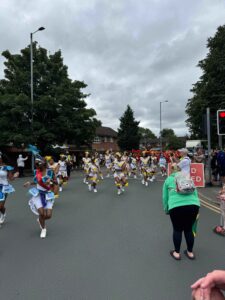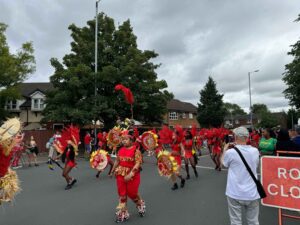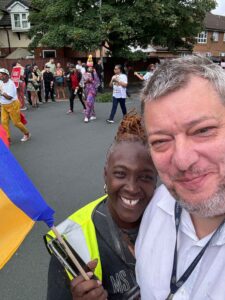In the heart of Manchester, where vibrant cultures converge, and the city’s pulse beats with diversity, the annual Caribbean Carnival has long been a powerful symbol of unity, celebration, and cultural pride. Yet, in recent days, turbulent social situations—marked by rising tensions, economic strain, and divisions—had cast a shadow over this much-anticipated event.
The carnival brings together people from all walks of life who face uncertainty. The community needed more than a festival; it needed hope, solidarity, and a reminder of the power of unity.
Amidst this backdrop, a beacon of support emerged from an unexpected source. The East Lancashire Masonic Charity, known for its charitable work across various communities, stepped forward to support the Manchester Caribbean Carnival. Their recognition of the potential of the carnival to foster much-needed community cohesion is a testament to their commitment to our community.
Seeing the challenges faced by the organisers in funding the event, they decided to step in with a highly generous £3000 grant.
The carnival committee, a passionate group of volunteers deeply rooted in the local community, does a marvellous job every year. However, it has been facing an uphill battle to secure enough funds to host the event on its usual grand scale.
The Freemasons’ financial assistance is more than just money. One of the committee members is WBro Darren Fletcher, who has been a stalwart volunteer and supporter of the Manchester Carnival for 15 years; in addition, Bro Nicolas Druce dedicates a lot of time to the event by providing outstanding webmaster assistance.
With the grant secured, the committee and the community can breathe a sigh of relief. The necessary sound systems for the parade can now be purchased, and safety measures can be implemented to protect attendees. The carnival, with its wide range of colours, sounds, and flavours, will once again be the lively celebration the community has grown to cherish. This anticipation of a successful and joyous event instils a sense of reassurance and hope in our community.
As the carnival day approached, the air in Manchester was filled with a palpable sense of anticipation and excitement. People from all over the world, including our local community members, volunteers, event organizers, and potential attendees, began to look forward to the event eagerly, feeling engaged and eager for the upcoming celebration.
The carnival has always been more than just a party; it was a space where differences were set aside, and people came together to celebrate a shared heritage and humanity.
On the day of the carnival, the streets of Manchester were transformed into a sea of colour and joy. Steel drums played rhythmic melodies that echoed through the city while dancers in elaborate costumes paraded down the streets, their movements telling stories of resilience and cultural pride.
Food stalls offering Caribbean delicacies like jerk chicken and plantains filled the air with mouthwatering aromas, drawing people worldwide.
But beyond the festivities, something deeper was happening. The carnival had become a space for healing. People who had felt isolated or disconnected in the face of social unrest found themselves in a community that welcomed them with open arms. Conversations sparked between strangers, and connections transcended cultural and social divides.
The East Lancashire Masonic Charity grant had done more than keep the carnival alive; it had helped create a platform for unity. It reminded everyone that, even in the face of adversity, there was strength in togetherness. The carnival became a testament to the resilience of the Manchester community and its ability to rise above challenges.
As the sun set on that unforgettable day, the streets were filled with laughter, music, and the lingering sense of something powerful—a renewed sense of community. The £3000 grant had played a crucial role in making it all possible, proving that even in the most challenging times, a little help could bring people together.
So, the Manchester Caribbean Carnival of that year would be remembered not just for its celebration of Caribbean culture but also as a moment when a community, supported by an act of kindness, came together to reaffirm its commitment to unity and cohesion in a world that desperately needed it.
